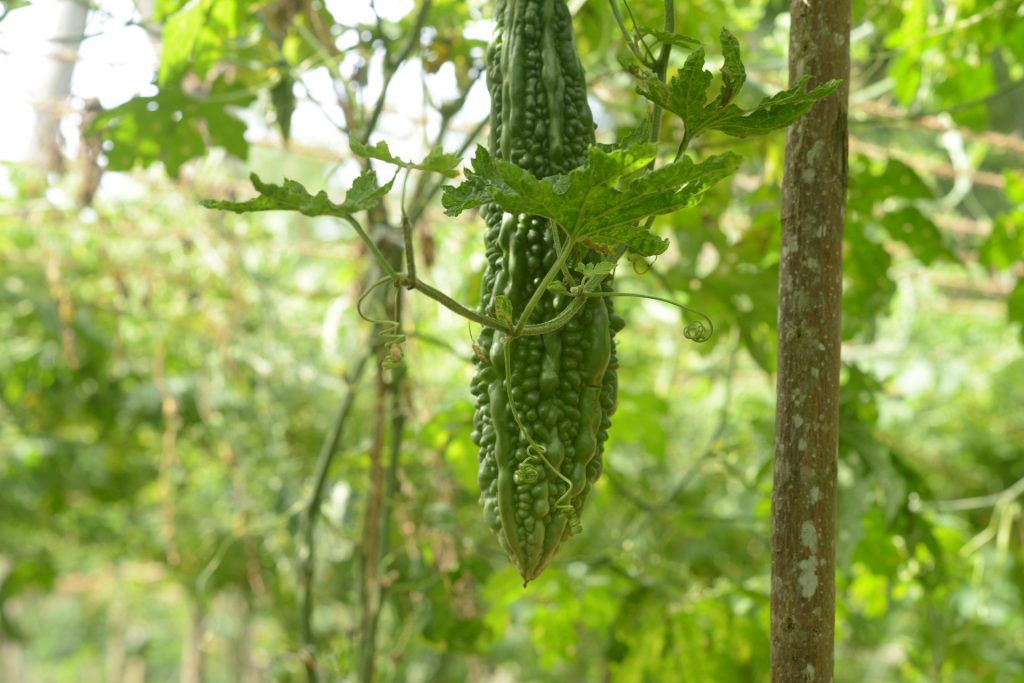Written by Sharmin Shanur and Edited by Mehr Kaur Bawa

Scientists are constantly working to find a cure for cancer, one of the leading causes of death worldwide. Bitter melon extract, in particular, has seemed to pique the interest of many cancer researchers. For centuries, bitter melon has been deemed a cure for all ailments in Ayurvedic medicine, a holistic system of healing with roots in the Indian subcontinent. However, with no prior scientific research done on its effects, many have regarded it as pseudoscience. A paper published last year by the Journal of Cell Communication and Signaling found that when cancerous cells are treated with bitter melon extract (BME), the expression of genes involved in glycolysis, or the energy making mechanisms, in the cancer cells is greatly reduced, resulting in nutrient deficient cancer cells. By altering glycolysis and the conversion of fat into energy, scientists were able to prevent cancer cells from using key nutrients to reproduce and spread [1]. In typical cancer cells, there are generally elevated levels of glycolysis; cancer cells usually use glycolysis to turn glucose, a sugar, into lactate. In noncancerous cells, this process is usually observed in fermentation in the absence of oxygen to help turn glucose into pyruvate, the typical byproduct of glycolysis. Increased lactate levels usually results in less stress on the cell and allows cancer cells to flourish. What are the next steps? How does bitter melon act inside the body of an organism? Does it negatively affect the metabolism of normal noncancerous cells?
Dr. Nerurkar’s study answers these questions through his review article on the recent research done on bitter melon in mouse models, organisms with similar biology to humans [2]. In this review, BME was shown to promote the death of and prevent the reproduction of cancer cells without affecting normal noncancerous cells in mice. When BME was injected into the body cavities of mice, it was also shown to inhibit tumor formation in mice with lymphoma. Research has suggested that all aspects of the bitter melon, from bitter melon oil to bitter melon seeds, can halt reproduction of cancerous cells in breast tissue, blood-forming tissues, and prostate cells. Other research papers have found alternative benefits of BME: MPC-30, a plant protein extracted from bitter melon, has anti-HIV and anti-tumor properties [3].
An increasing amount of research is focusing on the effects of food, specifically bitter melon, on cancer cells. The current research looks very promising and certainly points scientists in a direction that may involve considering natural resources for cancer treatment.
References:
- Sur, S., Nakanishi, H., Flaveny, C., Ippolito, J.E., McHowat, J., Ford, D.A., Ray, R.B. (2019). Inhibition of the key metabolic pathways, glycolysis and lipogenesis, of oral cancer by bitter melon extract. Cell Communication and Signaling, 17:131.
- Nerurkar, P., Ray, R.B. (2010). Bitter melon: antagonist to cancer. Pharmaceutical research, 27:1049–1053.
- Lee-Huang, S., Huang, P.L., Chen, H.C., Huang, P.L., Bourinbaiar, A., Huang, H.I., Kung, H.F. (1995). Anti-HIV and anti-tumor activities of recombinant MAP30 from bitter melon. Gene, 161:151–156.
